Text


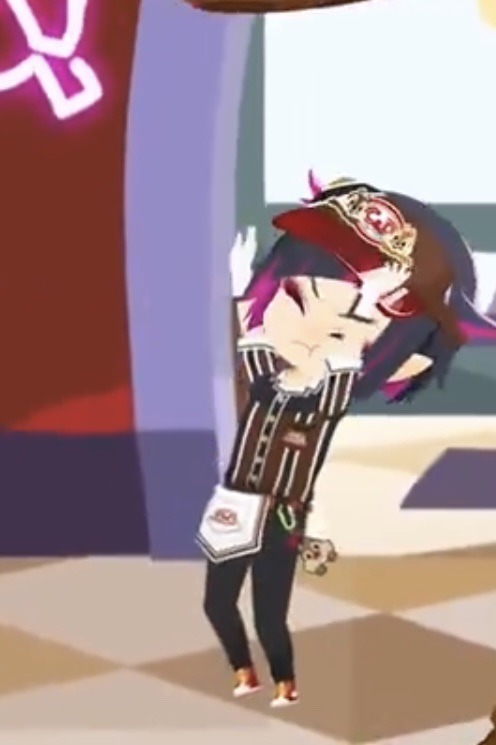
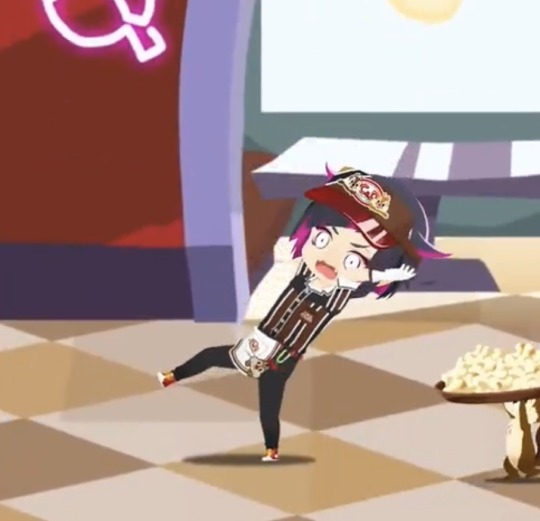
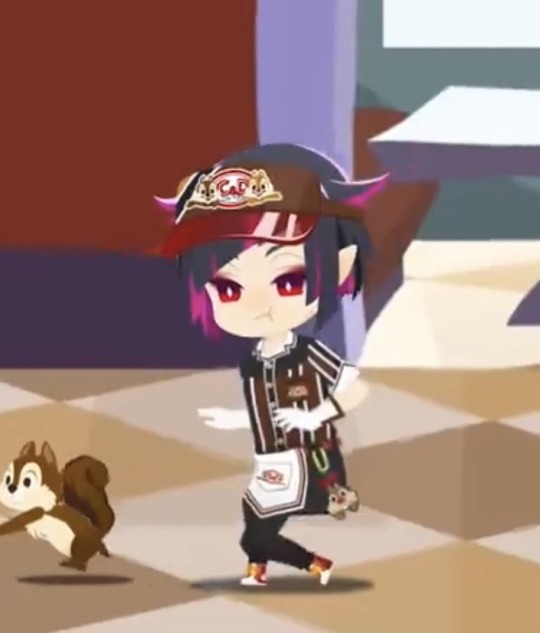
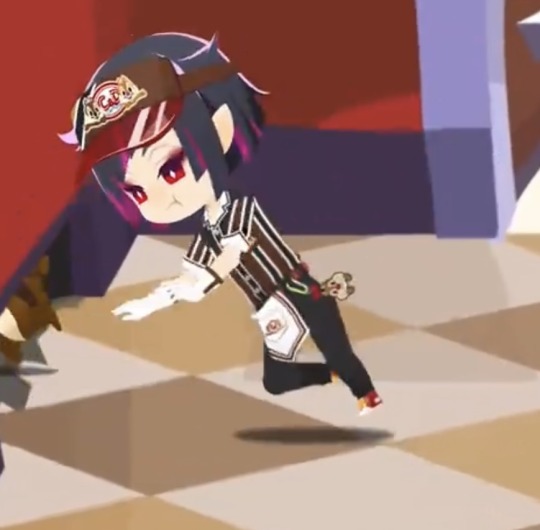
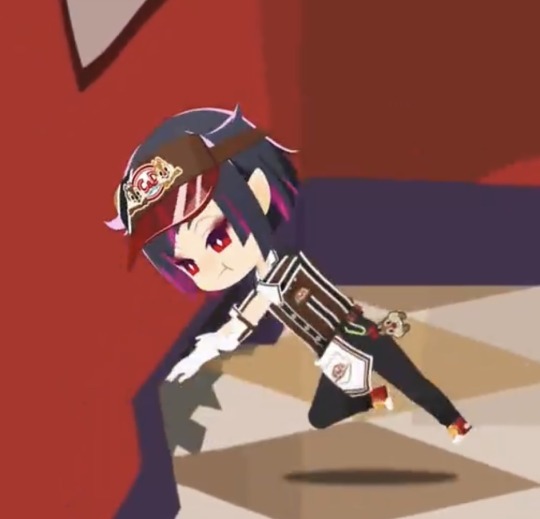

ABAJSSJS AHHHHH ISNT HE ADORABLE 💞💞💞💚💚😭😭😭
LOOOK AT HIM POUUITTT AHHHH 🥹🥹🥹💚💚💚💚💚
ABSJSJSJSJS ANSJKSDKDKD
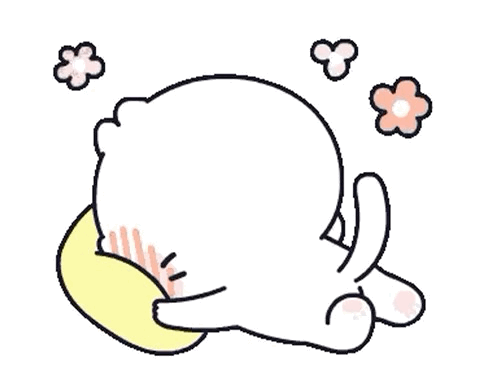

172 notes
·
View notes
Text
Prepping for uni is a lot more stressful than I thought it'd be lol
I guess I never fully realized until now that I'm really gonna be mostly all alone. Financing on my own, living on my own, just, everything. My uni is around 500 KM away from my hometown, and though I do still have family nearby, it's still different.
0 notes
Text
Planning longfics for Altair and Malva rn does anyone want to betaread
0 notes
Text


couple of extra low-quality gifs from one of my favorite '90s anime :D
just felt like messing around in this style! it's fun to get in there and just really scrunge it all up. >:D there's a lot of mistakes still, but uhhh something something it's about the ✨journey✨








8K notes
·
View notes
Text
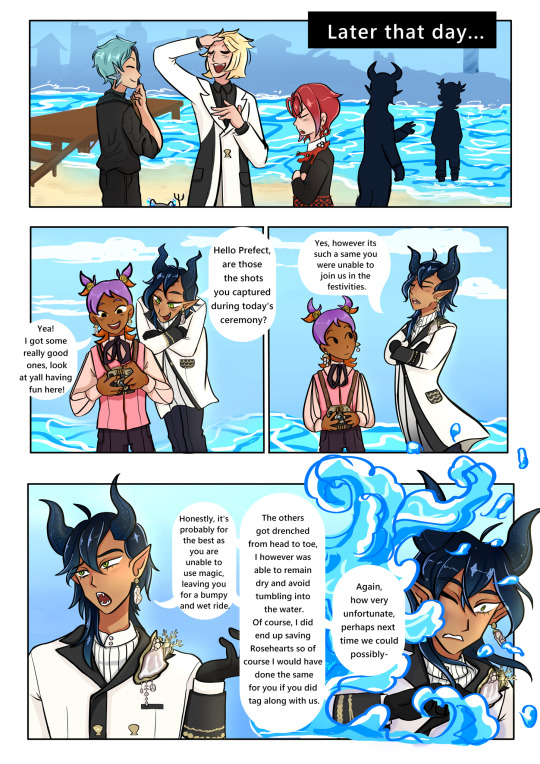
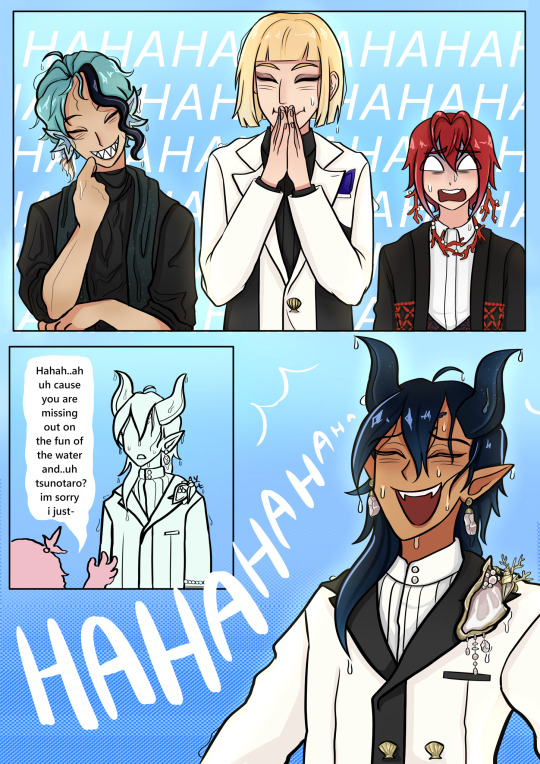
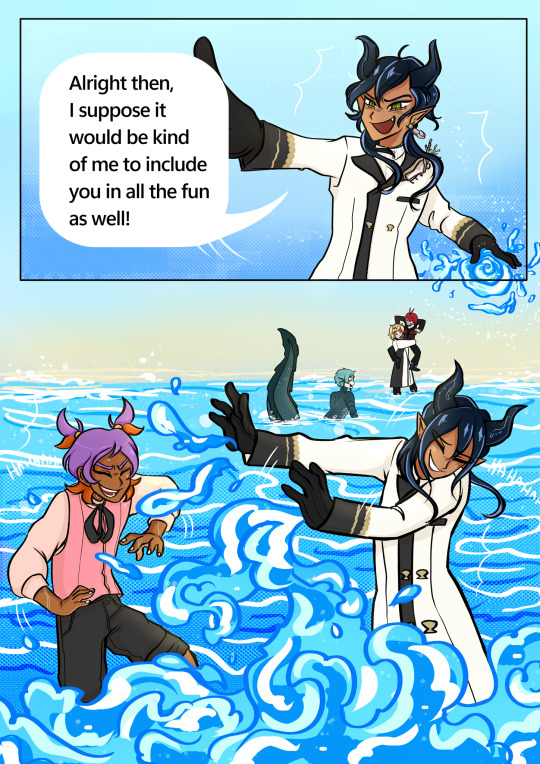
god it took entirely way too long to finish this small ass comic the event has been done but whatver heres my yuusona and the boys
1K notes
·
View notes
Note
I don't know if it would be possible considering how limited info wise we have of Malleus even after book 7 ending, but would it be possible to get an analysis of him?
Malleus Draconia: A Psychological Analysis
Disclaimer: Although this post is written by a professional psychologist, it is not intended to serve as a formal diagnosis. Rather, it is a character analysis of Malleus Draconia, created out of personal interest and passion for world-building. In psychological practice, accurate assessment should never be based solely on external observation.

Malleus Draconia is portrayed as powerful yet profoundly isolated. In canon, his aura and regal demeanor naturally intimidate others, so he seldom forms friendships beyond his guardian Lilia and a few like Silver and Sebek. In Book 7, Malleus' story reaches a breaking point: driven by intense anxiety about losing Lilia, he unleashes his signature magic to put the entire island into an enchanted slumber. He even proclaims a “wonderful future” in dreams - “Give in to slumber, and a thousand years will pass… you’ll become the protagonists of your own fairy tales” – rather than face reality.
Personality
Malleus presents a study in contrasts. Outwardly he is aloof, reserved, and intensely formal. Descriptions emphasize that he speaks quietly and “doesn’t get too friendly,” even when conversing. His powerful, intimidating aura naturally pushes others away and most students avoid him, and even those who admire him (like Silver or Sebek) find it hard to approach. This suggests low extraversion and high conscientiousness: he is dutiful and poised, but he keeps an emotional distance.
Yet Malleus also has a naive, almost childlike side due to his sheltered upbringing. He grew up isolated in Briar Valley and was only recently exposed to technology and the outside world. As a result he often seems curious and earnest - even amazed by simple modern inventions - and can display genuine warmth once at ease. In short, Malleus embodies both a dignified presence and an innocent curiosity. Despite his fearsome reputation, he is shown to be kind and compassionate, with a strong sense of justice and a protective instinct for those he loves. Psychologically, his traits suggest high conscientiousness and openness (curiosity about new things) but also high neuroticism (anxiety about loss). In Erikson’s terms, Malleus appears to have a well-formed sense of identity and duty, but his extreme isolation implies difficulty with intimacy due isolation - since he struggles to form close bonds.
Coping Mechanism
Malleus copes with stress and loneliness through control, avoidance and fantasy. A telling example is his relationship with his virtual pet “Roaring Drago”: he repeatedly hatches and raises the pet to avoid accepting its limited lifespan. This repetitive behavior - a kind of perseveration on a beloved object - suggests denial of loss. More dramatically, when overwhelmed by Lilia’s declining health, Malleus resorts to his greatest power: he conjures a magical dreamscape to escape reality. He tries to solve his emotional crisis by controlling the world - rather than process grief or fear, he offers everyone a painless future in their dreams.
This reliance on magical or fantasized solutions is akin to Freud’s concept of denial and magical thinking. Malleus literally denies death and change by entering everyone into enchanted sleep. He tells his friends not to be “afraid” but to become “protagonists of your own fairy tales”, effectively encouraging them to live in a childlike fantasy rather than face real loss. In cognitive terms, this is a form of avoidance coping: instead of confronting painful emotions, he displaces the problem into an alternate reality. Bowlby’s Attachment Theory helps explain this: Malleus' anxious attachment (especially to Lilia) makes separation intolerable, so his coping is to fix the situation by force. In effect he behaves like a frightened child himself, using omnipotent-savior tactics. As the lore notes, this protective streak can be maladaptive: it drives him to extremes like the Book 7 slumber spell.
A Lonely Dragon
Malleus' life has been defined by solitude. From birth he knew little besides the company of Lilia. In fact, Lilia spent centuries chanting lullabies and telling him stories as he grew inside his egg. When he finally hatched, that support abruptly ended: “after hatching, Malleus was separated from Lilia, his only source of companionship”. His grandmother and tutors provided etiquette but no warm family environment.
Part of Malleus' loneliness stems from being rejected by others. His immense power and dragon heritage make him seem like a monster to classmates. This persistent social rejection - being feared or even hated - has become a self-fulfilling pattern. He expects that if he reaches out, people will flee, so he keeps distance. This is evident when even friendly students like Silver attempt to befriend him and still “fail to get closer”.
The long-term effect of this isolation is clear in the story. Malleus enjoys being alone, but the wiki explicitly notes he “shows signs of loneliness and a desire to connect”. He is socially inexperienced (often awkward with small children, for example) and emotionally inexperienced. Psychologically, extended solitude hindered his social development: he often acts more innocent or childish than his peers. According to Erik Erikson (I hate his name), lacking close relationships can stall a young adult in the Intimacy vs. Isolation stage; Malleus' narrative indeed portrays him as chronically alone despite craving connection. Bowlby would say that without consistent, responsive caregivers, he likely developed anxious attachment and a fear that others will inevitably leave. In practice, his long-time solitude has made him unusually self-reliant in some ways, but deeply vulnerable in others.
Repeated rejection likely fueled his defensive personality. Freud might interpret his regal aloofness as reaction formation - presenting a proud front opposite to any inner insecurity. Bowlby’s theory again applies: early experiences (his kingdom’s attack, being left in an egg) may have instilled a belief that relationships are unsafe. Psychologists might liken him to having an avoidant attachment style - he avoids intimacy to preempt the pain of being hurt. Over time, Malleus internalizes the stigma of being a “monster,” which may lower his self-esteem or drive perfectionistic safeguards. In short, being routinely shunned or feared has taught him to rely on himself, to the point that he nearly welcomes isolation as protection.
Sleep Well
In Book 7’s climax, Malleus casts a magic field of sleeping thorn vines, across Sage’s Island. Once the spell takes hold, every living creature falls asleep (except Malleus himself). He announces there is no need to be afraid, insisting that eternal slumber will grant everyone their heart’s desires.
Psychologically, this mass-slumber is a dramatic case of denial and fantasy. Rather than face death or separation, Malleus creates a dreamscape where time (and pain) stops. He frames it as benevolent, invoking the bedtime stories Lilia told him as a child. In Freudian terms, he is using a childlike magical solution to an adult reality problem, a form of wish-fulfillment. From Erikson’s perspective on death and integrity, he refuses the natural cycle, trying to preserve a perfect world. Attachment theory would suggest this is a “protest” behavior in the extreme: instead of letting go, he forcibly tries to fix the situation for everyone.
This coping move also hints at possible delusional thinking: he genuinely believes the eternal-dream plan is a “wonderful future”. The narrative notes his fear, yet he willingly condemns everyone to an indefinite sleep to cope. In sum, by putting others to sleep, Malleus attempts to erase painful reality, illustrating the tragic extremes of his grief and denial.
Possible Diagnosis
His extreme anxiety over attachment suggests traits of a dependent or anxious attachment pattern. For example, his frantic declaration “Not losing you!” indicates panic at abandonment, reminiscent of Dependent Personality features (excessive need to be cared for, fears of separation). His tamagotchi behavior (refusing to let his virtual pet die) also shows compulsive attachment.
The Book 7 episode itself resembles an acute stress reaction or brief psychotic/mania-like episode. Casting a city-wide sleep charm and calmly rationalizing it could be viewed as a delusional coping mechanism. In DSM-5 terms, this might fall under an Adjustment Disorder with mixed disturbance of emotions and conduct (triggered by a known stressor, Lilia’s health). Some might even compare it to Borderline Personality (intense fear of abandonment, idealizing others, drastic emotional swings), though Malleus lacks the typical impulse behavior and identity disturbances of BPD.
Alternatively, one could see elements of trauma-related illness: he endured early-life trauma and this late crisis appears to be a pathological grief reaction. Malleus’ pattern - severe anxiety about loss, followed by an irrational, all-or-nothing solution - suggests an acute grief reaction or even acute stress disorder rather than a stable personality disorder. In any case, the DSM-5 would note his difficulty adjusting to the stress of possibly losing Lilia, manifested in extreme fantasy and avoidance (sleeping everyone).
Autism?
Yes, it's possible to interpret Malleus as having traits consistent with autism spectrum disorder. That said, there are several behaviors and characteristics that align with known clinical features of ASD, especially in Level 1 presentations.
- Social Communication Differences
Difficulty forming peer relationships: Malleus is canonically described as being feared, avoided, or misunderstood by peers. Even though he wants to connect, few people approach him, and he often doesn’t know how to initiate or maintain typical peer interactions.
Unusual speech or tone: He uses formal, archaic speech that differs from his peers. While some of this is cultural (he’s royalty), it also makes him seem socially “out of sync.”
Struggles with understanding social nuance: Malleus sometimes misinterprets modern slang or jokes and needs others to explain things to him (e.g., technology or social situations). This could indicate challenges with pragmatic language or social inferences, a core trait of ASD.
- Restricted and Repetitive Behaviors or Interests
Special interests: Malleus is deeply interested in gargoyles, and he can talk about them in great detail. The way he focuses on this niche interest is consistent with the "circumscribed interests" often seen in autism.
Routine-oriented behavior: His repetitive habit of raising the same virtual pet (Roaring Drago) again and again could be seen as comforting repetition and difficulty with change or loss.
Literal thinking: He sometimes takes statements or metaphors literally, a trait common in autistic individuals who may struggle with abstract or figurative language.
- However, it’s important to note:
Malleus’s behavior may be explained entirely by his status: he’s royalty, raised in isolation, and feared due to magical power. His social awkwardness and speech may be cultural rather than neurological.
His symptoms could also be interpreted as trauma responses and a lack of proper socialization. Yes, Chapter 7 could be seen as a meltdown, but it might just as well be his repressed emotions finally surfacing.
273 notes
·
View notes
Text
It's kind of like an Undertale "Despite everything, it's still you" moment, yk
0 notes
Text
It kind of feels like coming home, being here. More than that, it definitely helps with falling in love with fandoms and characters all over again
0 notes
Text
Y'all better get used to me oversharing again pretty quickly /hj
0 notes
Text
Honestly I've missed being on here a lot. It just kind of felt like I was taking up space, only reblogging without posting anything of my own
#whisper yaps again#Again!! i dont feel that way anymore#not that much at least#but im back for the vibes and for the fandoms I love <3
0 notes
Text
I'm feeling a lot more "me" again lately (after not going on to Twitter who would have thought). Gonna try to be more active on here again
#whisper yaps again#does anyone even remember me lmao#meh whatever#I have some stuff planned and hopefully I wont die before getting to finish them
0 notes
Text
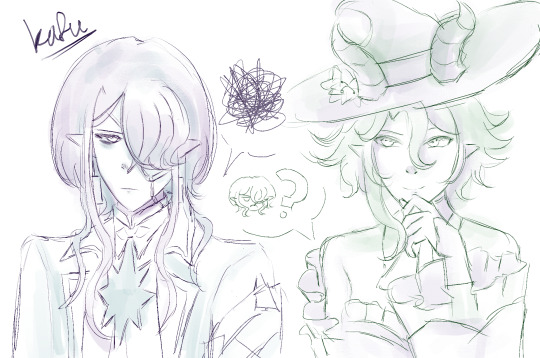
malva is @1dont-really-know ‘s oc
6 notes
·
View notes
Text

↳ ❝ 没有你在我口中就根本活不下去。❞
﹉﹉﹉﹉﹉﹉﹉﹉﹉﹉﹉﹉﹉﹉﹉﹉﹉﹉﹉﹉﹉
Welcome to my blog! ^o^ I’ve been waiting for you for a long time.
𓆩ꨄ︎𓆪 I’m kafu, also known as kit. she/her, he/him, they/them.
𓆩ꨄ︎𓆪 This is a blog dedicated to english fan translations/summaries of 头七怪谈 (touqiguaitan).
𓆩ꨄ︎𓆪 I am by no means completely fluent or an expert in chinese culture. I just want to help other non-chinese speaking people interested in touqi to access this series~
𓆩ꨄ︎𓆪 Not an expert translator — Touqi uses a lot of slang from mainland China and dated phrases, as well as words related to spiritual practices, hence it is hard for me to translate. (T^T) I will write notes to indicate parts I am unsure of. Please let me know if I get anything wrong ! I’ll only be about 80-90% accurate.
▲ DISCLAIMER : 头七怪谈 is a chinese horror visual novel involving dark topics such as graphic descriptions of violence, cannibalism, child trafficking, abuse and more. Every character is a bad person and/or has done something immoral at any point in the story. This does not reflect my own values, nor does this reflect the fans’ values. I only wish to help share this story. Block me if you don’t want to interact.
﹉﹉﹉﹉﹉﹉﹉﹉﹉﹉﹉﹉﹉﹉﹉﹉﹉﹉﹉﹉﹉
I use this player’s playthrough as a reference. Please go and give it a watch and refer to my translations.
✎ TRANSLATION/SUMMARY LIST :
EP 1.

4 notes
·
View notes
Text
Whisper goes back to Tumblr just to complain about real life. In other news, the sky is blue
0 notes